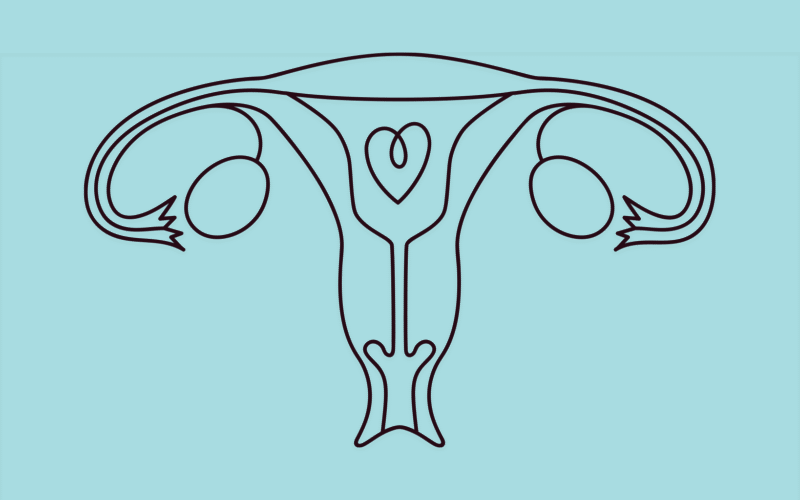So your doctor mentioned something called “AMH” and suddenly you’re Googling frantically at 2 AM, wondering if your ovaries are writing resignation letters. Take a deep breath – we’re about to decode this mysterious three-letter acronym without the medical mumbo-jumbo that makes your brain hurt.
What the Heck is AMH Anyway?
AMH stands for Anti-Müllerian Hormone, which sounds like something a medieval knight would battle. But don’t worry – despite its intimidating name, it’s actually just a helpful little messenger hormone that your ovaries produce to give you updates on what’s happening in there.
Think of AMH as your ovaries’ way of sending you a monthly newsletter titled “Egg Inventory Update.” Except instead of monthly, it’s more like a constant low-level hum of information that doctors can tune into with a simple blood test.
The Science-y Bit (Don’t Worry, We’ll Keep It Simple)
Your ovaries are basically like a warehouse full of eggs – except instead of being neatly organized on shelves, your eggs hang out in tiny fluid-filled sacs called follicles. These follicles are like little egg apartments, and AMH is produced by the smaller, developing follicles (the ones that haven’t quite made it to the “ready to ovulate” stage yet).
Here’s where it gets interesting: the more follicles you have hanging around, the more AMH they pump out. So your AMH level is essentially a head count of your egg reserves – what doctors fancy-pants call your ovarian reserve.
Decoding Your AMH Numbers (AKA “What Does This Mean for Me?”)
AMH is measured in nanograms per milliliter (ng/mL) or picomoles per liter (pmol/L), depending on where you live and which lab your doctor uses. Because apparently, even measuring hormones can’t be standardized globally. Thanks, science.
Here’s the general breakdown:
High AMH (above 3.0 ng/mL): Your ovaries are basically the overachievers of the reproductive world. This can be great news for fertility, but sometimes it might indicate PCOS (Polycystic Ovary Syndrome) – where your ovaries are a bit too enthusiastic about making follicles.
Normal AMH (1.0-3.0 ng/mL): Goldilocks territory – not too high, not too low, just right. Your ovaries are doing their job without any drama.
Low AMH (0.5-1.0 ng/mL): Your egg reserves are getting a bit cozy – there are fewer of them, but that doesn’t mean you should panic and start naming your houseplants.
Very Low AMH (below 0.5 ng/mL): Your ovarian reserve is running a lean operation. This doesn’t mean pregnancy is impossible, but it might mean having “the conversation” with your doctor sooner rather than later.
What AMH Can and Can’t Tell You
What AMH IS good at:
- Estimating how many eggs you have left (quantity, not quality)
- Helping predict how you might respond to fertility treatments
- Assisting in PCOS diagnosis
- Giving you a general idea of how close you might be to menopause
What AMH is NOT so great at:
- Predicting if you can get pregnant naturally (that’s way more complicated)
- Telling you anything about egg quality (your eggs could be winning beauty contests for all AMH knows)
- Giving you an exact timeline of your fertility (it’s more like a weather forecast than a train schedule)
Age and AMH: The Inevitable Decline
Here’s the thing nobody really prepares you for: your AMH naturally decreases as you age. It’s not personal – it’s just biology being biology. Your ovaries start with about 1-2 million eggs when you’re born (overachievers from day one), but by puberty, you’re down to about 400,000. From there, it’s a steady decline until menopause, when your ovaries essentially retire and take up hobbies like making you wake up in night sweats.
This means a 25-year-old and a 35-year-old can have the same AMH level, but it means different things for each of them. Let me paint you a picture:
Meet Sarah, age 25, AMH level: 1.5 ng/mL Sarah’s AMH might be considered “average” for her age group, but here’s the thing – she’s only 25! Her ovaries have been in business for just over a decade since puberty. An AMH of 1.5 at 25 might actually be on the lower side of what doctors expect for someone her age. It could mean her ovarian reserve is declining faster than typical, or it might just be her personal normal. Either way, she’s got time on her side and plenty of options.
Now meet Jessica, age 35, AMH level: 1.5 ng/mL Jessica has the exact same AMH number, but she’s been running the ovulation show for 20+ years. At 35, an AMH of 1.5 might actually be pretty fantastic – it means her ovaries have been aging gracefully and she’s maintained a decent reserve despite being in the fertility world’s version of “advanced maternal age” (thanks for that confidence boost, medical terminology).
Here’s the kicker: Jessica might actually have better fertility prospects than Sarah, even with identical AMH levels, because context matters more than the raw number. Age affects egg quality in ways that AMH can’t measure. Sarah might have fewer eggs, but they’re still young and spry. Jessica might have the same number, but they’ve been around the block a few more times.
It’s like comparing two cars with the same mileage – one driven gently by a retiree to church on Sundays, and another driven by a college student who thinks speed limits are mere suggestions. Same odometer reading, very different stories.
This is why your doctor considers your age, medical history, lifestyle, and about seventeen other factors before making any pronouncements about your fertility. Context is everything, which is why your doctor went to medical school and you didn’t learn this from TikTok.
The PCOS Connection
Sometimes high AMH levels can indicate PCOS, a condition where your ovaries are basically like that friend who shows up to every party – a little too eager and making things chaotic. With PCOS, you have lots of small follicles that produce AMH but don’t mature properly, leading to irregular periods and other symptoms.
If your AMH is sky-high, don’t immediately assume it’s good news. Your doctor will look at the bigger picture, including your symptoms and other hormone levels.
AMH and Fertility Treatments: The Prediction Game
If you’re considering IVF, AMH is like having a crystal ball – but one of those cloudy ones from a questionable fortune teller. It can help predict how many eggs you might produce during stimulation, which helps doctors tailor your medication doses.
- High AMH: You might be a “high responder” (lots of eggs, but watch out for overstimulation)
- Normal AMH: You’ll likely respond well to standard protocols
- Low AMH: You might need higher doses or special protocols, and egg freezing conversations might come up
When to Test Your AMH
You might want to consider AMH testing if:
- You’re curious about your ovarian reserve (fair enough)
- You’re planning to delay pregnancy and want more information
- You have irregular periods or other fertility concerns
- You’re considering egg freezing
- Your doctor suspects PCOS
- You have a family history of early menopause
Don’t Let a Number Define You
Your AMH level is just one piece of the fertility puzzle – and it’s a pretty complicated puzzle with pieces that sometimes don’t fit where you’d expect. A low AMH doesn’t mean you should give up hope, and a high AMH doesn’t guarantee smooth sailing.
Remember, people have been getting pregnant for thousands of years without knowing their AMH levels. Your great-grandmother probably didn’t even know she had ovaries, let alone what hormones they were producing, and yet here you are.
What to Do Next
If you’re concerned about your AMH levels, talk to your doctor. They can help interpret your results in the context of your overall health, age, and reproductive goals. And remember – knowledge is power, but it’s not destiny.
Whether your AMH is high, low, or somewhere in between, you’re more than a number on a lab report. You’re a complex human being with hopes, dreams, and probably a concerning amount of information about celebrities’ personal lives stored in your brain.
So take a deep breath, trust your body (it’s probably smarter than you think), and remember that fertility is just one aspect of your amazing, complicated, beautifully human existence.
Ready for Fertility Real-Talk?
Want hormone decoding, myth-busting facts, and science with a side of sanity? Subscribe to our weekly newsletter for straight-up info and snort-laughs you can actually use.
Want more? Grab “TTC but make it CHILL” to navigate this wild ride without losing your mind (or your humor).
Got AMH questions, fertility worries, or a midnight Google spiral? We’re here. Because you deserve clear answers—no medical degree required.






